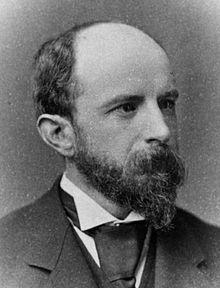
I'm coming to the end of The Education of Henry Adams and I can't say that I would put it at the head of the class. (The Modern Library Board did.) The segments concerning Adams's "theory of history"--even more boring than the analogous disquisitions in War and Peace, which Tolstoy may have thought the best thing about his book, though generations of stupefied readers page ahead to see when, if ever, they might be re-immersed in the world of Pierre, Andrei, Natasha, Princess Mary, Sonia, Nikolai Rostov, and the rest.
With The Education of Henry Adams, there is only Henry Adams for relief. The supporting cast--his father and brothers and all their other famous relatives, Charles Sumner, Presidents Grant and Cleveland and McKinley and TR, Henry Cabot Lodge (and his wife), John Hay, Clarence King--have their parts but are not vivid characters. Adams's wife, who committed suicide in 1885, when he was 47, is not mentioned. Nor is Elizabeth Sherman Cameron, the unhappily married woman (to a U.S. senator from Pennsylvania) with whom he platonically cavorted for years, starting before his wife's death. One gets the idea that, for Adams, this may have been a perfect arrangement. He was free to travel the world, write his books, advance his theories, pursue his "education," without domestic entanglement or emotional isolation. Born in 1838, he avoided service in the Civil War, not by hiring a substitute but by accompanying his father, Lincoln's ambassador to Great Britain, as "private secretary." He had a dim, mordant view of, it seems, almost everything. An epigram for his years teaching at Harvard might be: "The lecture-room was futile enough, but the faculty-room was worse"--from the chapter in the Education entitled "Failure," his own. When a cabinet official told him that Congressmen were "hogs," Adams asked him what, in that case, he called a Senator. The disapproval extends to himself. The underlying theme of the book concerns Henry Adams, referred to in the third person, grandson of one President and great-grandson of another, Harvard educated, trying to comprehend the rapid scientific and technological advances changing the country in the period between the Civil and Great Wars. It seems he would have been in a better place than almost anyone to do so, but that's not what he thought, and the figure of this very connected citizen going about his business, which was not business but self-education, is compensation for the tedious parts.
"The Dynamo and the Virgin!" What is he even talking about?
